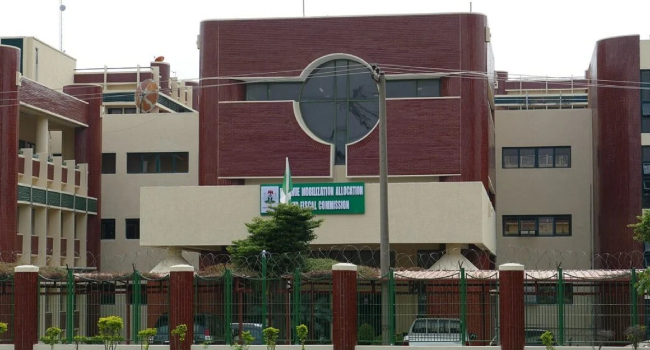The Chairman of the Revenue Mobilisation Allocation and Fiscal Commission (RMAFC), Mohammed Shehu, on Monday launched the process of reviewing the Revenue Allocation Formula (RAF) between the federal, state, and local governments.
Speaking at a news conference in Abuja, Shehu explained that the review had become necessary due to prevailing economic realities, as the last adjustment occurred in 1992.
He stressed that the exercise aimed to create a fair, just, and equitable revenue-sharing formula that reflected the responsibilities, needs, and capacities of the three tiers of government in line with their constitutional roles.
At present, the federal government receives 52.6 per cent, states take 26.7 per cent, and local governments receive 20.6 per cent. In addition, one per cent each is allocated to the Federal Capital Territory, the ecological fund, natural resources, and the stabilisation fund under the vertical revenue allocation.
Citing Paragraph 32 (b), Part I of the Third Schedule of the 1999 Constitution (as amended), Shehu noted that the constitution mandated the RMAFC to review the revenue allocation formula periodically to reflect changing circumstances.
He stated that Nigeria’s demographic, economic, and constitutional shifts since 1992 made the review essential. Recent amendments by the Ninth National Assembly, which transferred some functions—such as electricity, railways, and correctional centres—from the Exclusive List to the Concurrent List, had placed new financial and administrative responsibilities on sub-national governments.
According to him, these changes necessitated a reassessment of fiscal federalism to foster growth, promote state-level independence, and ensure equity, responsiveness, and sustainability.
Shehu assured that the review process would be inclusive, transparent, and data-driven, involving wide consultations with stakeholders, including the presidency, National Assembly, state governors, ALGON, the judiciary, ministries, civil society groups, traditional rulers, the private sector, and development partners.
He added that the commission would draw on empirical data, rigorous research, and international best practice in its assessment.


